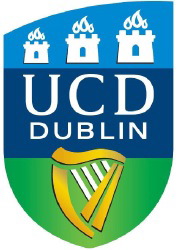What is a study group?
The study group format is standard. Mathematicians and other scientists gather for approximately a week with industrial collaborators to find solutions to a set of problems proposed by the latter.
- The first morning, industry representatives present the problems. One must appreciate that the problems presented are usually not mathematical problems to begin with. Typically they are descriptions of a complicated industrial process which is not well understood from a scientific point of view. Usually, there is a specific question of the type How might we prevent this happening? Sometimes, the request is vaguer to the effect that if we can help to model the situation, something useful may come from the mathematical solutions. When all problems have been presented, the academic/scientific participants select the problem(s) they would like to work on.
- The first afternoon, subgroups of the scientific participants meet with each industry representative and ask far more detailed questions. Ideally, at the end of the day, the team should have defined in broad terms the approximate goals for the week. It is important to realise that in some cases, a successful outcome at the end of the week may be a properly formulated mathematical problem (i.e., the correct mathematical question).
- During the rest of the week, the group works on the problems and progresses towards a solution. Participants may choose two strategies. Either they focus on a single problem all week or they may decide to hover between different problems. It is really a matter of taste. Some people like to work intensively on one problem: other prefer to make smaller contributions to a number of problems. The industrial partner may or may not attend all sessions. (S)he also should be easy to reach if more information is required.
- A mid week progress report may be required when the groups present their results.
- On the last day, all groups present their results to the industry representatives and the other academics.
- A report describing the work of the group is written in the weeks following the study group and given to the industrial partner.
In a study group one is confronted with real applications of mathematics and must focus on getting significant results quickly. However the first study group one attends can be an overwhelming experience, particularly for students. For this reason, specially designed students sessions are often organised. The goal is to familiarise students with the concept of a study group and with some of the standard techniques and ideas which commonly occur. To achieve this, before the study group, an experienced mathematician runs a session where (s)he uses one or several past (and generally simplified) study group problems with the students. (S)he plays the part of the industrial representative and presents the problem to the students. Using the solution previously obtained, (s)he can guide the students and help them rediscover the results. Working in groups, the students all contribute to the final result and this constitutes an excellent first contact with industrial problems.






